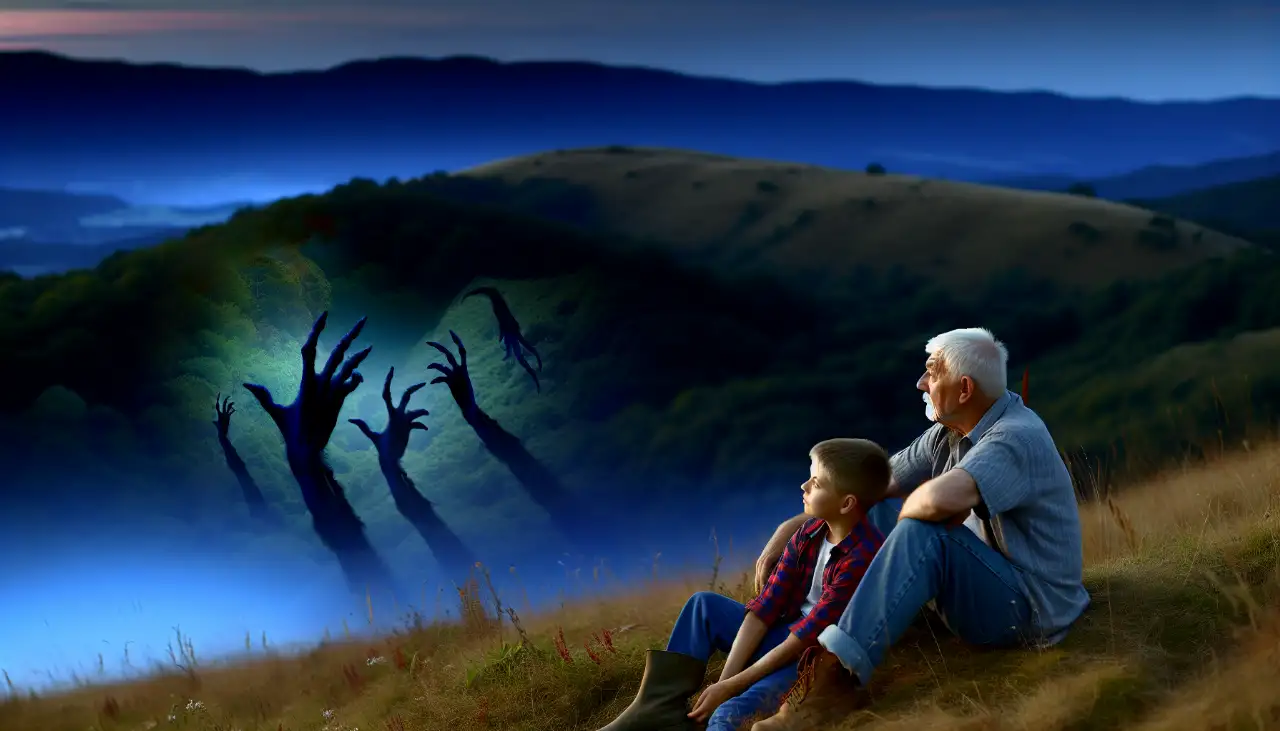
Twilight threw shadows up the hills like dark bony fingers. Watching the growing, slowly moving shadows, he saw them creep into the edge of the trees like a dark hand insinuating itself into a living glove.
The darkness seemed to grip the earth, seizing it away from the sinking sun, stealing the light, carrying it into the forgetful sleep of an approaching night. He settled back slowly on his heels, feeling the first coolness of the approaching evening flit about his face in the light breeze.
The day had been hot, hotter than most. He shifted his position to sit more comfortably on the flat stone he had perched on to rest. He took off the rough gloves and looked thoughtfully at his hands, inspecting the new blisters and old calluses, which the gloves were supposed to prevent, but somehow never seemed to do.
He surveyed his position here on the crown of this small hill. Off to his left, the hill became wooded with gnarly old pines; to his right, the same. He turned his attention, now, to the row of posts proceeding back around the top of the hill, posts he had been dutifully digging holes for most of the afternoon. They were standing in their yet-to-be-filled holes like drunken exclamation points, waiting on the hand that would right them and set them firmly in the crown of this old hill. The last hole in the line was still empty. Studying it, he thought about the sound the steel tamping bar had made as it punched through the top of the stone inside the hole, how much it sounded like a sigh somehow.
Something moved in the corner of his awareness. He looked away from the hole and gazed down the hill in the deepening twilight. Near the bottom, where it began to flatten out toward the back of the old frame farmhouse, he saw a figure moving slowly up the path leading to where he rested. It was the old man. He watched as the familiar figure approached an ancient walnut tree. He stopped there, and the boy could make out the familiar motions which told him the old man was loading his pipe. He then appeared more fully in view as he came around the base of the tree. The boy could see him stop and take in the view of the tree. Turning, he gave it a pat and then started on up the path toward him. The boy wondered at the way the old man seemed to glide up the hill. He didn't seem to climb, but rather to glide, hands behind his back, serenely, as though he and the mountain shared some secret of locomotion invisible to the rest of the world.
Reaching the top, the old man took a last draw on the pipe, releasing a cloud of smoke which formed a wreath around his head and seemed to struggle against the think wetness in the twilight air. Taking the pipe out of his mouth, he raised a work-shoed foot and struck the pipe against the sole to empty it. The sparks emptied into the breeze and looked to the boy as though they took on a life of their own skittering off into the breeze.
The old man put his pipe in his pants pocket and looked at the boy.
"Finished yet?"
"No," the boy said, "I hit something in the last hole up there. I didn't know what it was - I thought I'd ask you about it."
The old man made his way up the dozen steps or so and looked down into the freshly dug hole. "That's an Indian grinding rock," he said matter of factly.
The boy looked up from his seat. "I figured it was something like that," he said.
Before the words had left his mouth to hang in the sultry air, he knew it was a mistake. The old man looked down at the hole as though he was studying the pile of dirt and stones - as though he was reading from the rubble.
Finally, he spoke, "You figured that out all by yourself?" The old man turned toward the boy and asked, "Tell me what it was that gave it away to you." He moved to the same rock the boy was on and eased himself down. The question caused the boy to think about the stone, running the memory through his mind. It had been an odd thing when he first encountered it. The feeling when he first heard the metallic ring of the post-hole diggers as they bit into the soft sandstone had been one of fear; the hair had stood up on the back of his neck. The sense of something better off left alone had crept up his knees, making them weak. He hadn't thought much about it, really, at the time, but now in reflection, that same uneasy feeling began to return. He felt a chill shoot up his back, and he shuddered.
He turned from his thoughts to find the old man looking intently at him through a haze of pipe smoke. The smoke seemed almost ethereal; he felt as though it was carrying him away from his fears about the stone and towards someplace... someplace... he couldn't quite see it.
"The night air is cool; be careful you don't take a chill." He was smiling as he said it, one of those mischievous grins of his the boy had come to know so well in the course of his sixteen years.
The blue air of a deep twilight was settling in on them. The old man spoke again. "You didn't break it," he said, gesturing with his head towards the little mound of dirt behind them, "I broke it first, about fifty years ago I guess."
"You did?"
"Yes, you can't take the credit for it", he said, grinning. "Of course, there are some things better left buried, some things best left undisturbed, don't you think?"
The boy shuddered again involuntarily. "Yes, I do believe it would have been better off left alone. Why didn't you tell me it was there? I would have avoided it." There was a plaintive tone in his voice. Leaving it alone, the boy thought, would have indeed been the wiser course considering the reaction he had when he found it. Why was the old man forever doing these sorts of things to him? He had known it was there - why not say something?
The old man answered his question before the boy had finished forming it in his own mind.
"You needed to find it, even though you didn't know you needed to find it", the old man said flatly.
"And why would that be?" the boy asked. He was beginning to get irritated now. The day had been long, and all he wanted was to gather up his tools and head in for dinner and a long soak in the house's old tub. The old man looked at him with a piercing gaze for a moment. His eyes seemed both sad and angry. Quickly it faded and was replaced by the familiar twinkle.
"I guess, the reason is pretty simple," said the old man, "you can't really face the future until you have faced the past."
The boy wanted to object; he wanted to object to this nonsense riddle, to all the nonsense riddles he had heard over the years. But somehow, there was also a sense of simple truth in what the old man had said - a truth that didn't need you to approve of it for it to exist. He gave up on the anger - he was too tired - and the sunset dropping in to the mountains in the west was simply too overpowering to hold anger up to its beauty.
The boy just nodded.
The old man nodded, too, as though in complete silence they had come to an agreement - one that the two of them understood in all its details, but no words were spoken. They sat like that for a few minutes, just staring into the deepening sunset. The old man broke the silence, turning to the boy, he said, "The old men used to say that all eternity was there in a sunset, in one brief moment, just below the horizon where day extinguishes itself into night."
The boy looked at the sun, which had become a crashing ball of crimson and orange spreading out through the far mountains. He squinted at the dark line of trees there trying to find the moment day becomes night, that eternity the old men talked about. He felt the old man watching him - he always did - but he never knew exactly how he knew that. Words followed the feeling, but he wasn't sure if they were in the air or in his head, "Just follow the sunset, be there and here at the same time, look for the place it turns into night." The boy squinted hard into the fading light. "Don't try so hard, just let it come to you."

The boy felt a sudden twinge as he gazed now, not squinting, at the fading ball of light. It was as if someone punched him in the stomach, and at the same time, he was falling. He reached out instinctively to catch himself. Catching himself was out of the question. though. The rock he had been sitting on wasn't there anymore, neither were the hills, or trees, or even the old man. A sudden wave of intense nausea overtook him, but left as soon as it came. He realized his eyes had been shut. Refocusing on the world helped steady his body. The familiar surroundings grounded the swift sense of movement he had felt. He looked over at the old man. He was sitting closer to him now, only a couple of feet away; odd, he thought, he didn't sense him move. The trees were strange too; they looked like they looked in the light of a full moon after a rain, sparkling there in the twilight.
The old man just looked at him, a small smile played across his countenance, and then, he began to speak.
"There are just some things I guess we can never hope to understand, not because we don't want to, but simply because our minds aren't big enough to wrap around them."
The boy nodded again, his voice didn't want to work. The words were there, but they made no sense in his head. He could feel the silence; it was a silence he knew, but he could never quite find the source of the stillness.
"The people who cut that stone you found, hunted here, played, laughed, mourned their dead, raised their children, and wondered about the world, life, and why they were here. They're gone now, passed into that eternity lying under the sun, somewhere in the twilight. They came to the end of their journey in this place, in their time. Now all that's left is a stone which tells a story, a signpost."
His mind flooded with images, sounds, smells, all crowding past his awareness in a blurry flash. The weight of this collage was grinding. He felt the loss, as though somehow it had all come to nothing. The tragic emptiness of that feeling pushed in on him, bringing the feeling of stinging tears to his eyes. He stammered out a question, though his throat felt as though it wanted to choke off the words.
"What happened to them?" he asked.
Looking at him with eyes which spoke of great distance, the old man said, "Their time ended - it's as simple a thing as that. This is your time, my time, though that is ending as well. Each thing exists in its time, and when it's finished, it's just finished."
"So what's the point then," the boy asked, "why all the pain and misery of life if it just comes down to a hole in the ground and no one even remembers your name?"
"What difference does that make? You surely don't believe the world exists just to satisfy your need to be remembered do you?"
Looking down, the boy thought about what he had asked and realized the selfishness of the question. "No, I don't think the world is here just to satisfy my ego; at least, it hasn't so far."
"It's not likely to, either", the old man said with a soft snort, "but that isn't the point. This is a place that knows about endings, and it makes the proper setting to talk about our own endings."
Sixteen didn't seem to the boy like a good age to talk about endings, but he knew it was a useless process to object. Besides, the old man usually had something to say that was worth thinking about. He supposed living all those years had to be for some reason. If nothing else, it made for some good stories. Looking out over the hills, he settled back onto his stone chair still glowering out its heat from the day and felt its warmth as a comfort in the growing chill of the evening air. The old man's face seemed very serious in the twilight. He thought about all the time they had spent together. How they had laughed, walked with the moon, and worked to change the face of the land. He thought he understood what the old man meant in a way, at times it seemed useless to clear and fix what nature would only overrun in short order without constant attention. It seemed like a losing battle sometimes, though he knew now that the real value was in the process, not in whether the results would be permanent.
"We've come to the end," the old man said matter of factly, "it's appropriate in light of this sunset."
"Why do things end at all? I mean, why do they have to? It seems like such a waste of time," the boy said. "It just seems like everything struggles to take hold of life, learn and then, just as it's starting to make sense, it all goes to nothing. What's the point?"
The old man smiled broadly, "You're right, of course, but then who ever said life itself had to make any sense. At least, not to you and me. Maybe its just foolishness to talk this way, maybe, in the end, it's all foolishness, just a childish way to spend our time."
"What about the people who were here before, were they Indians?"
"What difference does that make?" the old man asked. "They were human beings; human beings who felt life just as keenly as any other human beings. They're just gone now, receded into the past taking their dreams with them."
Shuffling his position a little on the rock, the boy became keenly aware of a growing sense of melancholy which seemed to rise from somewhere in his stomach and flow upwards around his heart, making it ache with a sense of loss -but loss of what he wasn't sure.
Pausing for just a moment to light his pipe, the old man went on with what he was saying.
"They went away in their time, just like we'll go away in ours. That's the nature of the world and life. We may feel the sadness in that - or rather, in the passing of those before us; but in the end, it doesn't mean anything unless we have built something better because of it. And we can't see that, most of the time. Most of the time, there isn't much in the world that makes sense. So, in the end, we each come to our own personal end and add our own despair to the pile left by those before us."
"This isn't going to one of those 'death talks', is it?" the boy asked.
The old man chuckled at this, "No, no death today. It would be an insult to that sunset."
The boy grinned. He liked these talks, although, he couldn't ever seem to remember the gist of them afterwards. He just chalked that up to having a bad memory for conversation.
"You have simply reached a point in your life where you don't need old men with crazy ideas complicating things for you. The time is here for an ending to all this and a beginning for you to go out and live life the way you see fit."
The boy ran the words back through his head again and began to raise a feeling of rejection from them. The old man interrupted his thoughts as though he watched them form.
"Before you go feeling sorry for yourself or thinking I'm insulting you in some way, you need to reach down and feel for the meaning behind the words. You'll see that I'm right, and it means very little in a personal way."
Turning over this new paradigm of thought, the boy reached back in his memory to touch upon so many things he and the old man had shared both in thought and words. His ability to recall all this shocked him. It wasn't a simple matter of vague recollection. Each memory, each realization over their long association ran through his mind with stinging clarity. Each scene, each conversation played itself out against the black background of his memory. Some memories begged for focus, for deeper inspection, but something dragged him relentlessly through the corridors of his past. Suddenly, as the last memory surfaced and fled by his mind's eye, he felt a gripping spasm in his stomach muscles. The muscles flexed so hard he saw stars, but the stars continued and slowly congealed and began to resolve into a light which grew in an instant to a blinding intensity. He opened his eyes in the present; he hadn't realized they were closed.
As his eyes regained their focus on the present moment, the realization that the old man was absolutely correct fell on him like a weight from above. The boy shuddered. He knew the old man was right; it was an ending of something, something of which he hadn't known the beginning, but definitely felt the pain of its end. The tears came then, bleeding from his eyes, streaming down his face. The sense of loss was physically palpable, and yet, oddly, the old man was right - he knew it wasn't personal, somehow. He heaved a deep sigh and looked out at the sunlight cascading through the mountain hollows. He felt very old, like the ages had settled on him with the realization.
Looking at him quietly, the old man dragged at his pipe and let the smoke drift away into the stillness. Silence spilled out between them, and they sat watching the sunset as the mountains cradled it into night. The old man finally broke the silence, saying, "I don't know if any of this ever makes any sense in words. I know that someday you will understand it somehow, and in that understanding you will come to realize that words don't matter - they can't carry the load of the meaning. They're just too weak."
"I just don't understand what you mean by all this coming to an end - why does it have to end, and if it does, what was the point?"
"That's the problem with you," the old man said quietly, "you always want things to have a reason, to make sense, to be something you can wrap your mind around so it doesn't frighten you. The fact of the matter is, there are no accidents, no coincidences. That you can't always see those reasons, or for that matter, see hardly any reasons for most of what happens in the world, doesn't reflect some sort of random nature of the universe. What it should tell you is that your mind is too small a thing to be able to fit the whole into. Everyone's mind is - not just you. It's a part of the human condition and reflects our limited ability through reason to comprehend the whole."
Questions crowded into the boy's mind, so many things he wanted ask, but he felt as though time was growing very short in the face of this sunset. He knew that somehow it signaled an ending and that it had been spiraling towards him all along - he had just chosen to ignore it. The old man spoke again.
"I've taught you all I know, I'm done."
Those words were like the sound a heavy book makes when you close it, such a simple finality, no more, over, finished. The boy turned towards the twilight sun as he felt the welling of tears sting his eyes, but he did not close them. He knew it was right - not for reasons of thinking, but in some other way, things had changed, and his tears were the expression of grief that he could never reclaim them. Ebbing away, the emotion left him, and he sighed.
"I guess all things come to an end," the boy said, almost mournfully.
"This is true," the old man said, "but it's better to choose your endings rather than letting them choose you. The people whose dreams litter this mountain are gone - they didn't choose an ending. They waited until time squeezed them dry, and then they weren't strong enough to carry their dreams anymore and just blew away in the wind. All people wait, until time comes calling and there is no more room for waiting, then life is over."
The boy felt this truth seep into his bones. He felt a sudden, overwhelming sadness - not grief, not pity; only sorrow for what was lost, what in the end had only fed the grass. Life was here in this earth; so was death. The two seemed to revolve in an eternal balancing dance just under the soil. He felt like he was floating somewhere between the two. He felt like he had run out of words, the well was dry, there was only earth, wind and sky and they spoke more than his words ever could. He turned his gaze to the old man who returned it calmly and then began to speak.
"I need to tell you a few things, last things, before we leave here. But first, I need to remind you of a few things. You need to understand where you were when you started to be able to understand where you are now."
Having said that, the old man began quietly and succinctly to recount every experience, every idea they had explored in the boy's life and their time together. The detail of the account was stunning, starting at age four and moving onward, experience-by-experience, word-by-word. The boy could feel every movement, every point. Some he now understood, others were still a mystery, yet, all were coming back to him as though they had been recorded verbatim in some invisible book of life, and the old man was reading the pages to him slowly and carefully. He could taste the dust in the hay fields, the coldness of sudden summer rains, the pain and the joy, all of it came rushing through his being in quick succession, as though he were watching a movie in fast motion.
When the old man finished, the boy was literally gasping for air. It seemed like the fast moving images, emotions, and insights of his life sucked the wind out of him as they passed by. He had no idea what to say, couldn't think of anything to say. Words by now seemed so pointless after reliving, in such a vivid way, the path he had walked in life. He just looked at the old man, a little agape, still trying to get his breath completely back.
"I didn't tell you all that to impress you," the old man said dryly.
"The point is for you to understand there has been purpose and direction to what, I'm sure, most of the time, has seemed confusing and pointless altogether." He chuckled but turned serious again and scowled at the ground for a bit before continuing.
"You know, we are usually so busy doing the things in life we think are important that we don't see what we're holding in our hands. You aren't any different from anyone else in that - neither am I." He hesitated, it seemed, and then went on. "What you have in your hands is a living dream. It's fragile and incomplete, but is still alive and is demanding your attention. Just like a baby bird, touch it and it will squawk and demand to be fed. Through my adult life I have feared it, hated it, loved it. How you end up taking care of it is your choice."
"I don't understand," the boy said, "I thought we had covered it all. You mean it's kind of like a philosophy that has to be thought about?"
The old man answered with an example from his own life. "When I came here," he said, "this land, this farm, was destroyed. The ground you're sitting on was barren dirt; all the topsoil was washing away. There were gullies and briars. It didn't look like it would grow anything, just end up washing away to the rock, and it already had, in places. But I started to work on it. I felt how the rain ran down these hills like tears down a face, felt for the places it needed to turn, where it needed to spread out. I hauled brush and old hay, seeded and worked. Over the years, it came back. The ground filled in, the grass started to grow, trees sprouted. Forty years later I can look at it and say it's better than when I found it, because I worked with it, not against it. Once I'm gone, people can do what they want with it, but as long as I'm alive it will remain this way. When I go, I'll know that I helped this little spot on the earth to heal."
"You're holding a fragile old dream in your hands, and you have a choice to make. Are you going to leave it better than you found it, or will you ignore the tools you've been given and let someone else pick up the slack?"
The boy was shoved deep into thought with that question. How could he ignore who he was? The thought that it could somehow be pulled apart from him seemed silly on the surface of it. But, somewhere underneath, he understood what the old man was saying, there were choices to make, and he had to question sincerely whether he had the will to face them.
"I can't not be who I am," he said softly.
Quietly, but strongly, the old man answered.
"Yes, you can. You can become all sorts of things, and in the end, I suppose it doesn't matter much, anyway. I just need you to understand something, though." He paused again for a moment as if he were thinking of just the right words to say. "I need you to know that I love you, and that isn't attached to what you do in the world. As long as I'm alive, you have a home to come to. I may not always approve of what you do, but you need to understand that I will love you anyway. Whether any of this ends up meaning anything to you or not isn't the point. When you die, you can go knowing there was at least one person in the world who loved you without wanting anything from you, just for you. I think that's important."
"I love you too," the boy said, before the emotion choked off the words.
The old man nodded, and the boy felt as though there was more said in that nod than most people could say with a lifetime of words. He felt very open now, at peace. The ground could have swallowed him whole and it wouldn't have mattered. He had belonged somewhere. That was all that counted in that moment.
"Now I need to give you my conclusion," the old man said, changing back to a more business like tone in his voice.
"What I had and have given to you were bones. I think after watching you all these years, you have the meat to put on them. I'm not saying that to give you a big head, I'm just saying what I have seen. You move quicker, see more clearly, and at those moments when you aren't being so pig-headed, you move with a power that is down right scary."
The old man looked directly into the boy's eyes, and the boy could see that old familiar twinkle, "Don't ask me what that means," he said, "I have no damn idea." Then he burst out in one of those deep laughs, which seemed to hover all around you and hug you at the same time.
"We've come to the end of our road, and it's time for new directions."
The boy started to interrupt, but the old man stilled him with a small wave of his hand.
"Let me finish what I started, then we'll go eat; it's getting late."
Settling back in silence, the boy just listened.
"You have to go on with life, live it, experience it, that is the rule. You will forget most of this. I don't know why, but you will. Someday, down the road of your life, it will start to come back if you have made room for it. Where you will head from there is your choice and your task. It is appropriate to be in this place of endings now, because we will speak no more of these things. I am finished. The dream is in your hands now, breathe gently on it and make it grow."
The old man grew silent, and the boy sat there a moment. He couldn't think of anything to say. Everything he thought of seemed shallow and self-serving. So in the end, he turned to the old man and simply said, "Thank you."
The old man nodded, and the boy turned to look at the sunset one last time. The sun had disappeared now. The tops of the mountains were a rose-colored purple from the light, and it was fading. It seemed like a very long sunset. His ears popped suddenly, as though he had just come down from a very high place. Looking over at the old man, he thought how small and frail he was looking these days. Old age was taking its toll, he guessed. He pushed to his feet from his rocky seat and felt the cold wetness of his sweat-soaked t-shirt wrap around him. He shuddered from the sudden chill. Pulling on his rough, leather work-gloves, he thought how it had been a very long day.
He looked over at the old man as he threw the heavy old posthole digger and iron bar up on his shoulder.
"Are you coming?" he asked, "or did you want to sit and talk a while?"
The old man looked up at the boy with what the boy thought was a hint of a melancholy smile and said, "You go ahead. I'll be on directly."
"Well, don't stay out here too long. It feels like it's going to be a cool night."
"Don't worry about me," the old man said, "I'll be just fine, you go ahead without me."
Turning, the boy started down the hill. Twilight had fallen now, and all he could make out through the shapes of trees and the hills was the one small light on the back porch of the old house. The day had ended, but it was odd, he thought, how hollow he felt - like an ache outside himself was trying to get in and fill the space. He shrugged off another chill, set his aim on the one small dim light in the distance, and started moving.

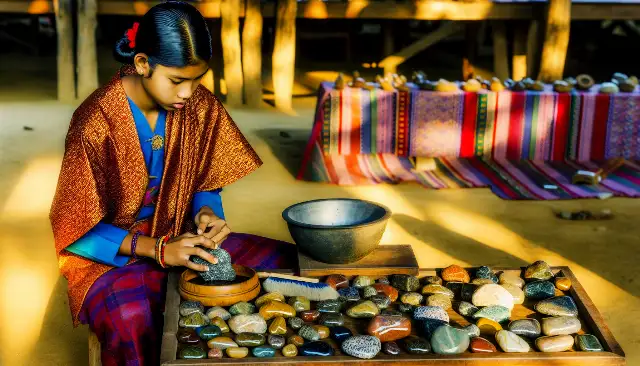
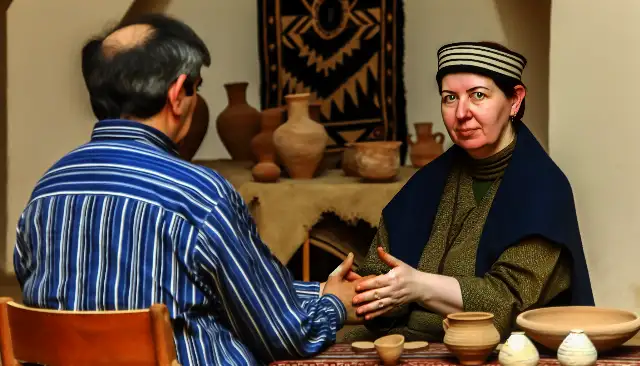
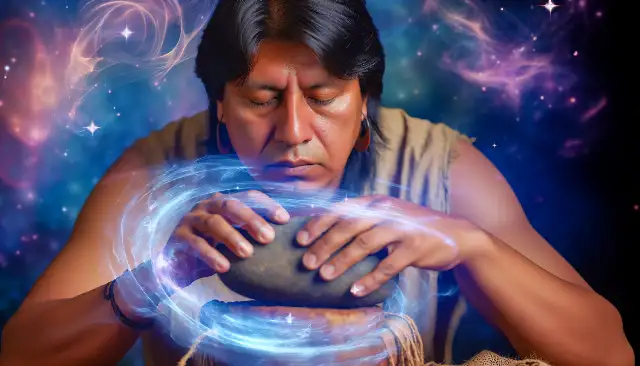

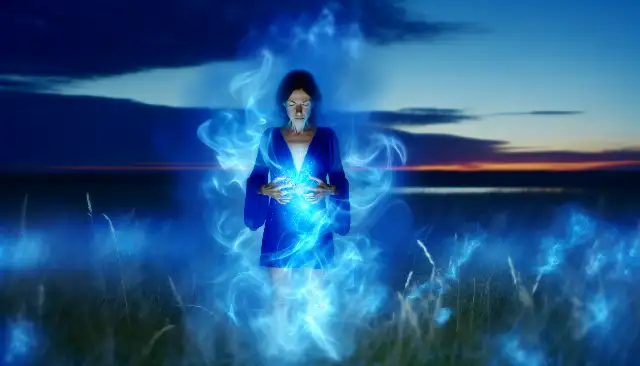
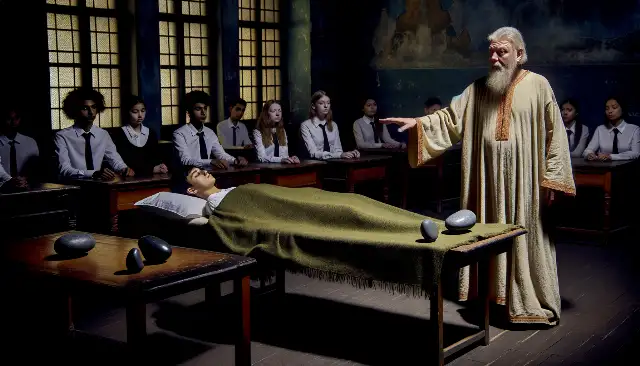
You don`t have permission to comment here!
Terms & Conditions
Subscribe
Report
My comments